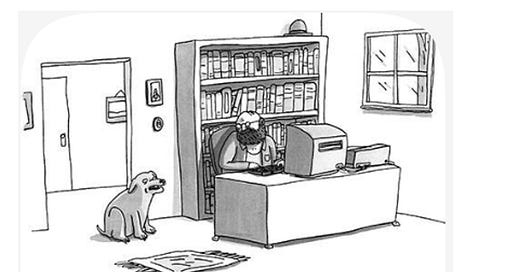What is left to say about writer’s block? The term has its own Wikipedia entry, for heaven’s sake. Scores of books dissect the concept, and podcasts too. It’s obviously not a modern-day problem. Gustav Flaubert, Herman Melville, Charlotte Brontë, and George Eliot all wrestled with creative blockages of one sort or another.
Why bring it up at all?
Because there’s still so much shame and self-blame around the idea that one isn’t writing enough, or at all, or that the output is frustratingly erratic.
Suffering writers assume, perhaps, that the act of creative writing should operate smoothly and predictably, as if they themselves were a piece of mental machinery with well-greased wheels and cogs grinding away.
Ever since Henry Ford automated the manufacturing assembly line, we’ve concluded that a big reason to mechanize tasks is to boost productivity and efficiency. Machines get shit done. They make stuff. And they do it in a predictable fashion.
Unfortunately, the machine metaphor and all it implies has crept into our language and expectations around making art (and just about everything else). Writing is productive insofar as it fulfills a deep-seated need for expression. But that doesn’t mean that creative writing is tied to traditional notions of productivity—a concept that really came into its own in the manufacturing age.
A writer who feels “stuck” feels as though the machinery—which by definition is expected to operate smoothly—has broken down. Our imagination goes into hiding; the internal idea-generator runs dry; we get stuck on a phrase, a sentence, and cannot move past it.
Well, news flash: Creative writing is not made by machine (leave AI out of this). Our mental machinery, even if we call it that, is not designed to run entirely predictably or even efficiently. We aren’t turning out widgets on an assembly line.
So writers suffering creative blockages are essentially blaming themselves for conditions that do not apply to them.
There’s no point trying to meet expectations if they’re the wrong expectations for your line of work.
All that shame and guilt around your output—or lack thereof? It’s misplaced.
We don’t always have immediate answers, or any answers, to all the creative problems we face. Why on earth should we? Who said? Where is it written?
A writer who says “I’m blocked” senses that something is getting in the way of writing more or writing again. The frustration that arises stems from a deep need to fix what seems to be broken.
But what if nothing is broken?
What if hitting a creative wall is a normal part of the creative process?
What if all you need do is be patient, turn your hand to something entirely different, and at some point, reconnect with your “why” for writing the piece you’re stuck on in the first place?
I’m not suggesting that writer’s block isn’t real (I disagree with that viewpoint). We absolutely can and do get stuck. So do astrophysicists wrestling with big data sets. So do CEOs perseverating about layoffs and budget cuts.
The trick is to respond in ways that are helpful and healing rather than punitive. Please remember that writer’s block is not your fault. You did nothing wrong. There’s nothing to be ashamed of or take the blame for.
Writers are complex biological organisms dwelling in complex, often unpredictable environments. Operating like a machine is the last thing to expect and the first thing to discard as an object to emulate.
WRANGLING THE DOUBT MONSTER: FIGHTING FEARS, FINDING INSPIRATION
Available in hardcover, audiobook, and ebook.
“…delivers an empowering, fresh approach to tackling the self-doubt that haunts creative minds.” —BookLife-Publishers Weekly





